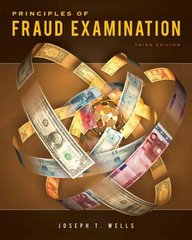Question
RESOLVING ETHICAL BUSINESS CHALLENGES Demarco just graduated from Texas University and hadbeen snatched up by Xeon Natural Resources Incorporated, one of the top natural resource
RESOLVING ETHICAL BUSINESS CHALLENGES
Demarco just graduated from Texas University and hadbeen snatched up by Xeon Natural Resources Incorporated, one of the top natural resource extraction companies in the world. Because he was Brazilian, bilingual,and spoke several specific Brazilian dialects, his stationing in Brazil was a no-brainer. Xeon was deeply involvedwith a project within the Brazilian rain forests in miningan extremely valuable element called niobium. Niobiumis a rare earth element essential for micro-alloying steelas well as other products such as jet engines, rocket subassemblies, superconducting magnets, and super alloys.Brazil accounts for 92 percent of all niobium mined,and Xeon Natural mines much of the element in Brazil.Xeon discovered a large niobium deposit and estimatesthe corporation could make an additional $5 billion inprofits over the next two decades.Demarco soon discovered he was one of severalemployees assigned to explain to the indigenous population that Xeon wanted to extract the niobium fromthe lands given to the tribes by the Brazilian government. The land was, by decree, compensation for nativeminorities. Having spent several months with varioustribes, Demarco learned they were communities that hadnot been altered by Western culture. It was obvious toDemarco if Xeon began strip mining the area, thousandsof "outsiders" would be brought in and would impact thecultural heritage of the indigenous populations.Demarco discussed this with his boss, Barbara. "Yes,I understand all you are saying, and I agree this willchange their lives as well as their children and grandchildren's lives," Barbara said. "But think of it this way,their standard of living will be greatly enhanced. Schoolswill be built, hospitals will be available, and there will bemore employment opportunities."Demarco responded, "While the tribal leaders wanta better life for their people, I feel they are being steamrolled into accepting something they don't understand.I've talked to some of the tribal leaders, and I am positive they have no idea of the impact this will have ontheir culture. We have many stakeholders involved inthis decision, including Xeon's employees, the tribes, theBrazilian government, and even communities beyondthe tribal lands. I think we need to reevaluate the impacton all of these stakeholders before proceeding."Barbara sighed. "I think you make some goodpoints, and I am concerned about these different stakeholders. But you should understand we already havebuy-in from the key decision makers, and our business depends upon being able to mine niobium. We've got tocontinue this project."Demarco returned to the camp. The other specialistsquestioned him about Barbara's reaction. As he spoke,some of the specialists became concerned about their jobs.A few admitted they heard the local and national mediawere raising awareness about the negative impact miningthis mineral could have on the indigenous populations.A few days later, Demarco heard that some of thetribal leaders had new concerns about the project andwere organizing meetings to obtain feedback from members. Demarco approached one of the mining specialistswho studied the potential impact of strip mining theland. The specialist said that while he understood stakeholder interests, he felt the extraction methods Xeonused were environmentally friendly. While creating atemporary disruption in the ecosystem of the rainforest,Xeon's strip mining methods provided an opportunityfor restoration. In fact, strip mining that was done in theUnited States before there were any regulations providesa good example of how the forest can recover and growback to its original condition.Demarco knew despite the potential benefits, therewould still likely be opposition from the tribal community.Additionally, no method of strip mining is entirely environmentally friendly. Demarco realized even with restoration,the lives of the indigenous tribes would be forever altered.Demarco was to meet with tribal elders the next dayto discuss their concerns. He understood that whateverthe decision, it would negatively impact some stakeholders. On the one hand, the tribal members might compromise their traditional way of life and the environmentwould be harmed if the strip mining project began.On the other hand, Xeon's future and the future of itsemployees depended upon being able to mine the niobium. It could also benefit the tribes economically. Hewas not sure what he should tell the tribal leaders.
Questions:
1. How should Demarco approach this issue when hemeets with the tribal leaders?
2. What should be the priorities in balancing the various stakeholder interests?
3. Can the CEO and board of directors of Xeon continueoperations and maintain a stakeholder orientation?
Reference: Ferrell, O. C.; Fraedrich, John; Ferrell. Business Ethics: Ethical Decision Making & Cases (p. 53). Cengage Learning. Kindle Edition.
Step by Step Solution
There are 3 Steps involved in it
Step: 1

Get Instant Access to Expert-Tailored Solutions
See step-by-step solutions with expert insights and AI powered tools for academic success
Step: 2

Step: 3

Ace Your Homework with AI
Get the answers you need in no time with our AI-driven, step-by-step assistance
Get Started


